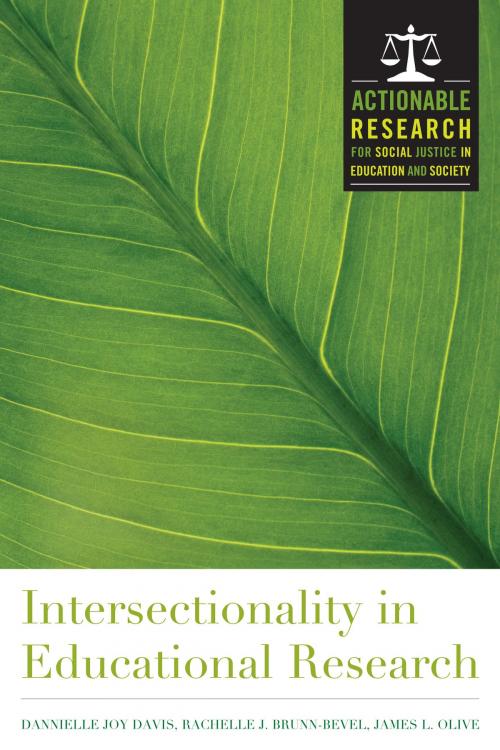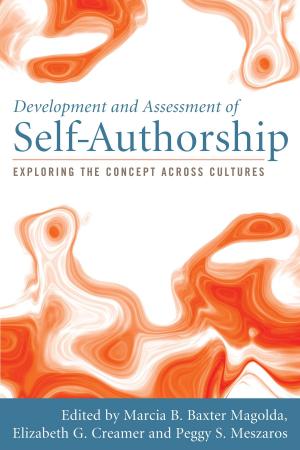Intersectionality in Educational Research
Nonfiction, Reference & Language, Education & Teaching, Reference, Higher Education| Author: | ISBN: | 9781620360989 | |
| Publisher: | Stylus Publishing | Publication: | July 23, 2015 |
| Imprint: | Stylus Publishing | Language: | English |
| Author: | |
| ISBN: | 9781620360989 |
| Publisher: | Stylus Publishing |
| Publication: | July 23, 2015 |
| Imprint: | Stylus Publishing |
| Language: | English |
The purpose of this work is to advance understanding of intersectional theory and its application to research in education. The scholars whose work appear in this volume utilize intersectional theory and research methods to work in fields and disciplines such as Education, Sociology, Women’s Studies, Africana Studies, Human Development, Higher Education Administration, Leadership Studies, and Justice Studies. The book illustrates how intersectional theory can be used in both quantitative and qualitative education research on college student access and success, faculty satisfaction and professional development, and K-12 educational issues such as high school dropouts and bullying.
Intersectionality is increasingly being used in research and education. This theory holds great promise in exploring students’ experiences in terms of access, success, and outcomes for marginalized groups. In essence, application of the theory promotes critical complex thinking regarding the intersectionality of race, class, and gender and their outcomes.
Intersectionality is increasingly being used in research and education. This theory holds great promise in exploring students’ experiences in terms of access, success, and outcomes for marginalized groups. In essence, application of the theory promotes critical complex thinking regarding the intersectionality of race, class, and gender and their outcomes.
The purpose of this work is to advance understanding of intersectional theory and its application to research in education. The scholars whose work appear in this volume utilize intersectional theory and research methods to work in fields and disciplines such as Education, Sociology, Women’s Studies, Africana Studies, Human Development, Higher Education Administration, Leadership Studies, and Justice Studies. The book illustrates how intersectional theory can be used in both quantitative and qualitative education research on college student access and success, faculty satisfaction and professional development, and K-12 educational issues such as high school dropouts and bullying.
Intersectionality is increasingly being used in research and education. This theory holds great promise in exploring students’ experiences in terms of access, success, and outcomes for marginalized groups. In essence, application of the theory promotes critical complex thinking regarding the intersectionality of race, class, and gender and their outcomes.
Intersectionality is increasingly being used in research and education. This theory holds great promise in exploring students’ experiences in terms of access, success, and outcomes for marginalized groups. In essence, application of the theory promotes critical complex thinking regarding the intersectionality of race, class, and gender and their outcomes.















